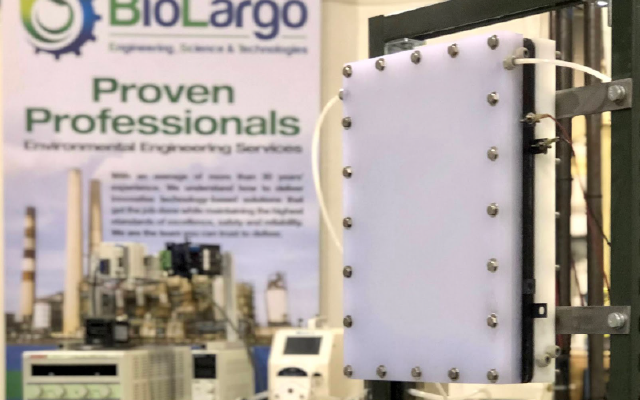Source: Mark Gilman at Benzinga. To view the original article, go to https://www.benzinga.com/general/biotech/21/09/23049489/biolargos-groundbreaking-technology-to-eliminate-the-presence-of-forever-chemicals-in-drinking-wa
A bipartisan coalition of the U.S. House of Representatives in July helped pass the “PFAS Action Act of 2021,” which would establish a national drinking water standard for per- and polyfluoroalkyl substances (PFAS) contamination. The bill would enable the Environmental Protection Agency (EPA) to require the cleanup of sites found to be contaminated with two of the most common PFAS chemicals, PFOA and PFOS, set air emission rules surrounding the disposal and incineration of PFAS-laden waste, and place new limits on the introduction of PFAS chemicals into waterways.
The movement on Capitol Hill also puts in the spotlight innovative companies like BioLargo, Inc. This cleantech company has developed groundbreaking technology that can economically and rapidly remove PFAS chemicals from water sources without producing large volumes of PFAS-laden waste, one of the principal drawbacks of common treatment solutions like carbon filtration.
If the PFAS Action Act is passed by the Senate, select PFAS chemicals will be designated as hazardous materials, allowing the EPA to clean up contaminated sites and create stricter rules for handling them. Without making a mountain of PFAS-laden carbon waste associated with current technologies, the Westminster, California-based BioLargo’s Aqueous Electrostatic Concentrator (AEC) technology is proven to remove more than 99% of PFAS from contaminated water. Compared to carbon filtration systems, the AEC generates only a tiny fraction of the PFAS-laden waste and will cost less to operate.
PFAS has become a major concern for the U.S. and other industrialized nations. The chemical has been found in the drinking water of more than 1,400 U.S. communities. It has been determined to be a top priority for cleanup because of its link to cancers, thyroid issues, fetal developmental problems, high cholesterol, and other medical disorders. PFAS has been found in contaminated industrial soil, landfills, airport groundwater, aquifers, municipal water sources, wells, and even lakes and streams.
Concurrently, PFAS is unfortunately a familiar presence in homes, as they are used in the manufacture of many staple consumer items such as cleaning supplies, nonstick cookware, and packaging.
Meanwhile, BioLargo has recently announced two new potential clients (a municipality in Southern California and a federal government agency). They recently sent the company PFAS-contaminated water samples to be treated by its AEC water treatment system. BioLargo sees this as an essential first step in its multi-phased commercial approach, which includes off-site treatment of client-supplied water, an on-site pilot treatment system at the client’s location, and ultimately, full-scale operations.
“By treating client water with our in-house AEC system, we can optimize it for the unique characteristics of the water from each source and confirm for the client that our system removes PFAS to the levels that meet their particular regulatory requirements,” said Randall Moore, President of BioLargo’s engineering subsidiary.
BioLargo is now preparing to build commercial-sized units for pilot projects to be used across the United States. The company is also aggressively pursuing potential markets in communities needing groundwater remediation near industrial sites, military bases, and airports.
For more information on BioLargo, go to www.biolargo.com, and to learn about their PFAS Testing Program, go to https://www.biolargoengineering.com/biolargo-pfas-testing-program/.
For direct contact: Tonya Chandler, Director of Strategic Marketing and Business

